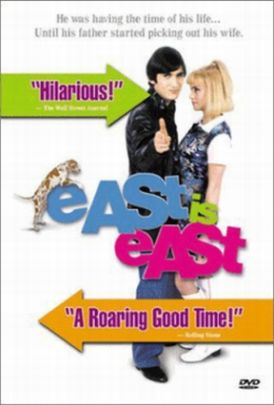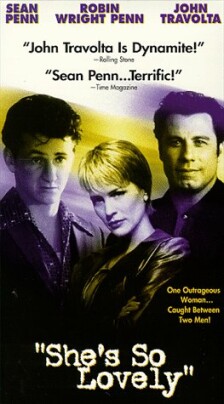Kama Sutra
Kama Sutra by Mira Nair (co-written by Ms Nair and Helena Kriel) stars
Indira Varma as Maya and Sarita Choudhury as Tara, two childhood friends in 16th
century India who become deadly rivals in love in adulthood. It is an Indian
version of the English bodice ripper style of historical romance and altogether
tedious in terms of narrative and characterization, though the sumptuous visuals
and the great beauty of Miss Varma make some amends for those who are forced to
watch it.
Based on a short story called
“Hand-Me-Downs”
by Waiida Tabassum, the story is of Princess Tara who passes along all her
clothes to her maidservant Maya. Maya, who is more beautiful than the princess,
resents this treatment, and when the princess marries the local maharajah, Raj
Singh (Naveen Andrews), she sneaks up to his room on his wedding night and,
before he comes to Tara, seduces him herself. When the subsequent deflowering of
Tara doesn’t go so well, Maya tells
her former playfellow that “All my
life I’ve had to wear your used
things; now you must spend the rest of your life with something
I’ve
used.”
Not very nice of her, you might think, but Maya is obviously supposed to be a
sort of proto-feminist heroine. When she receives a handsome offer of marriage
from Tara’s hunchbacked
brother—much above her station though he is—she refuses.
“Must I say yes to
everything?” she asks her mother.
“Her used clothes and now her
brother?”
“It’s
our destiny,” says mum.
“I’ll
make my own destiny, Marsi,” says the
pert little (actually, she is enormous) Maya with a toss of her head. And off
she goes to learn the art of the courtesan (hence the title) from Rasa Devi
(Rekha) and fall in love with a handsome sculptor called Jai Kumar (Ramon
Tikaram). Jai, too, is clearly meant to be a sympathetic character, since he is
a free spirit as well as an artist. “I
used to worship inside temples,” he
tells Maya, “until I saw that
everything around me was holy. . .Now, like a madman, I worship everything I
see.”
It is not the only mark of his tell-tale, 20th century sensibility. He also
has, like any other modern guy, a hard time learning to
“commit.”
Though he loves Maya, he is worried about his
“work”—and
his independence. Like the good feminist she is, she leaves him and goes back to
the palace as the king’s chief
courtesan. This offers the double benefit of giving her a new revenge against
Jai as well as a redundant one against Tara, who is naturally wildly jealous of
her former servant, especially when the latter refuses the customary offer of
the queen’s hand-me-downs in which to
meet the king.
Likewise, though the idea of having the king sink into debauchery and opium
addiction ( “He started off as a brave
warrior and ended as an insect sucking on a poppy
flower” ) is a good one, it is also
hedged about with laughably unhistorical circumstance. The invasion by the Shah
which his weakness produces is portrayed at the end as if it were a matter for
the king only and nothing to do with his people, least of all Maya, who saucily
marches past the black robed invaders on her way out of town. Maybe Ms Nair
thought it an ethnic slur upon the Persians to show them raping and enslaving
her with scarce a thought for her injured self-esteem.
Great swatches of the dialogue, too, could only have been said in the 20th
century: “You touch me and I
don’t know if
it’s about your work or what
it’s
about,” says Maya to Jai. And later:
“You were the one who talked about
love all the time, and, now it’s
facing you, you run from it.” Or when
the king, rebuffed in an attempt to reconcile with the despised Tara, asks,
“So you hate me
too?”
“I do not love you enough to hate
you,” she says. Presumably, her
consciousness raised, she would have got round to divorcing the pig and getting
a Princess Di-like alimony deal if the Shah
hadn’t saved her the trouble by
invading.
Discover more from James Bowman
Subscribe to get the latest posts to your email.







